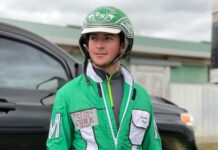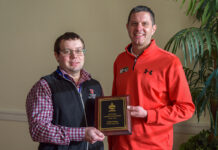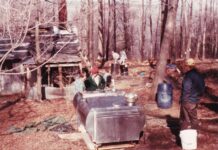“If I had something I needed to talk to Father about, and didn’t want anybody else to know, milking time was when we always talked. Most of the nights, though, we didn’t talk at all. We didn’t talk that night.
I don’t know how to tell it, but there was something nice about being out there alone with him and smelling the cow smell, and hearing the milk go singing into the buckets. Sometimes it’s nicer not to talk when you’re near somebody you love.”
— Ralph Moody
It goes without saying that reading is a silent escape from the mad noise of the world. It is the deepest gift when an author’s life story speaks from a shared well of life’s memories held most dear.
The first time I read Ralph Moody’s life stories of his ranching experience as a young boy, I wondered where this treasure had been hiding. My children were still quite young, I had just lost my beloved father, and was struggling with questioning, for lack of better explanation, “what’s the point of it all?” I lost my desire for writing, and set my love of photography completely aside.
My heartbreak over losing our patriarch cut deep. Dad was the one who put joy in the every day, finding glory in the little things, expressing kindness to the disconnected, welcoming people of all walks of life. Most of all, he absolutely loved his family. Knowing him carried the immeasurable blessing of believing you were his absolute favorite person in the whole world.
Home
When our county hosted its first hot air balloon event, one of them, the Shamrock, landed in one of his hay fields. In no time, Dad was telling us about the crew that he had been so happy to meet as he helped them gather the enormous balloon and basket.
“Hey, I hope you’ll drop in again!” was his oft-repeated remark. Our farm was one big welcome mat, and Dad often said he really didn’t have much desire to be anywhere else in the world.
To this day, I share his love of home greatly over travel.
Blessing
Dad was an interesting person who constantly soaked up knowledge on a vast variety of interests. I was blessed to know him, and not from afar, but by working shoulder-to-shoulder with him, seeing the world through his keen, receptive vision.
So, Ralph Moody’s writing dropped in my lap at the most perfect time. It was a desperate need answered. As I questioned how to go on, I read of this youngster who adored and respected his impressive father in similar life experience. His father succumbed to tuberculosis, leaving a wife and young children to find a way to survive.
Seeing good
Because of his great influence on his oldest son, 11 years old, the resourceful family survived and thrived. My children deserved better than what my broken heart was giving, and I could feel my dad telling me so through this true-life story.
My own father lost his beloved mother when he was about the same age as young Ralph, and spent several years struggling through his own darkness.
“The light just went out,” he told me, speaking of life after his mom’s shocking death from a tonsillectomy.
He feared he wasn’t a good student or even a good person in those painful years as he struggled with his anger at the injustice of such tragedy.
“The glass is half full,” was one of his oft-repeated mottos to his children.
See the good. Be the good. Find beauty in a drought-stricken field greening up, a nest of bunnies found in a hayfield on an otherwise dismal day, a stranger becoming a friend. And most of all, be grateful for what you had, even in the sorrowful shadow of great loss.













